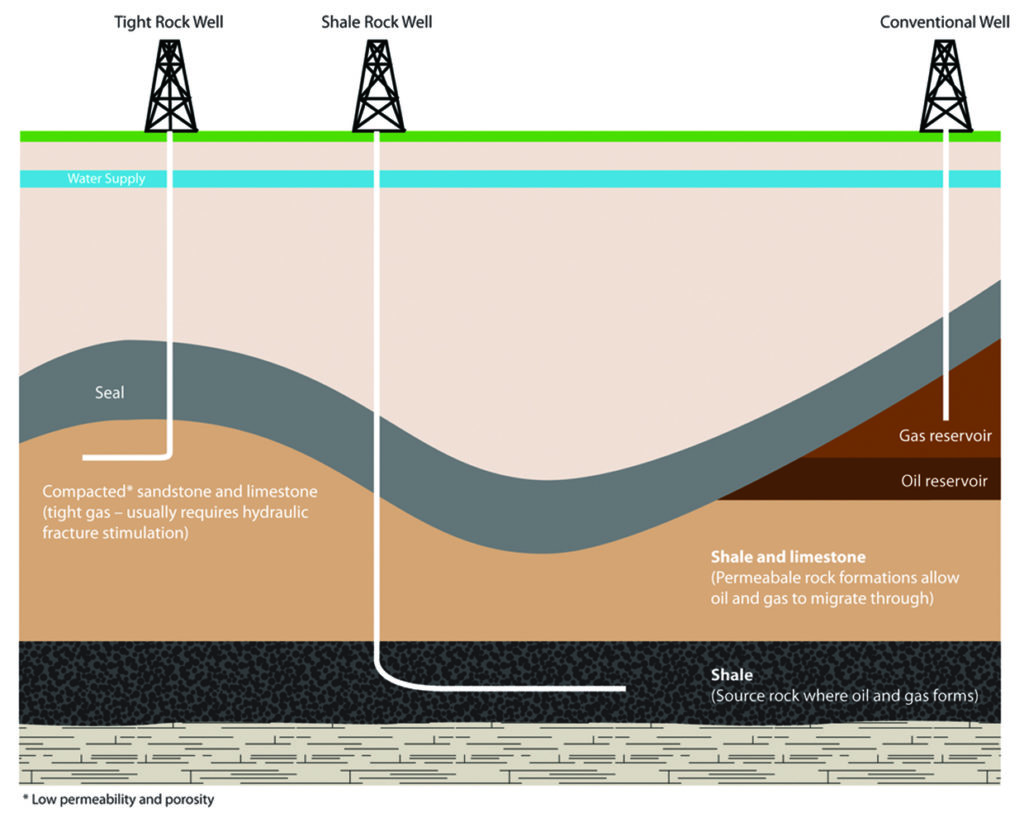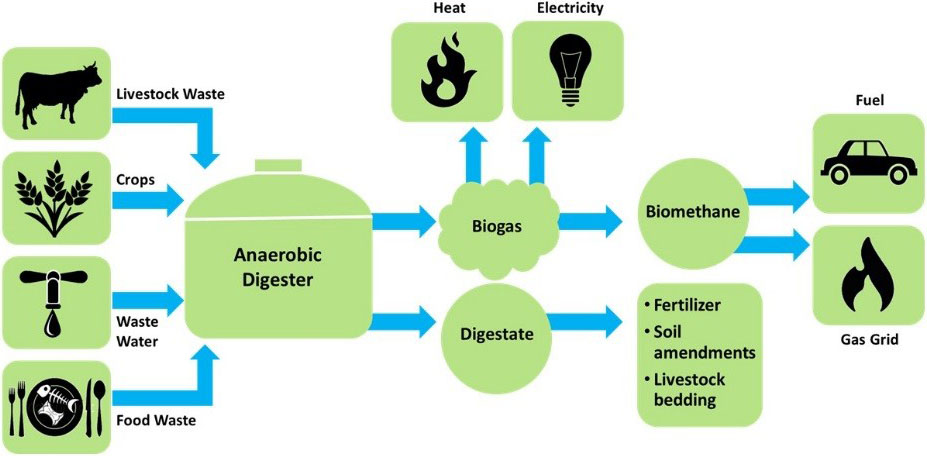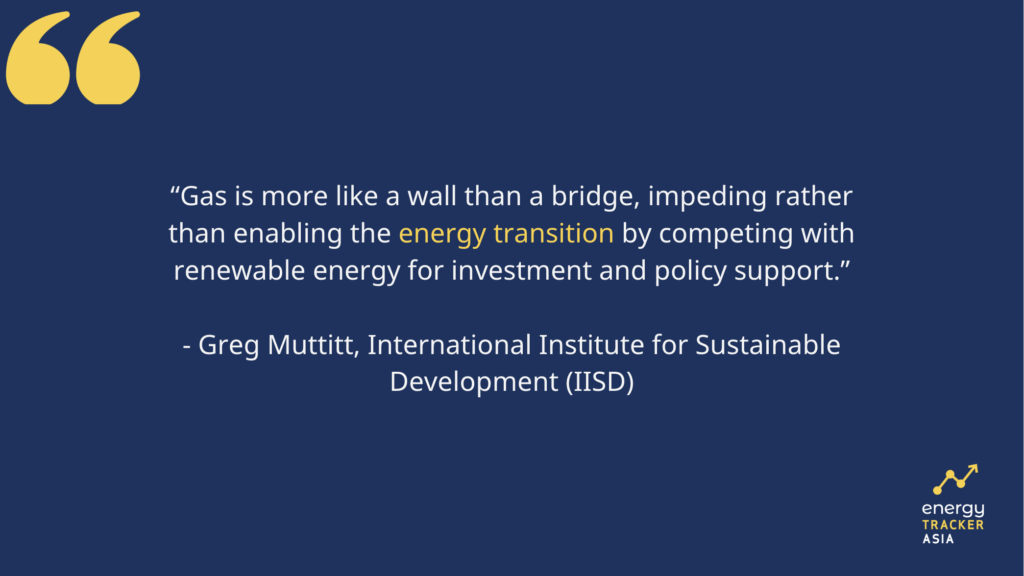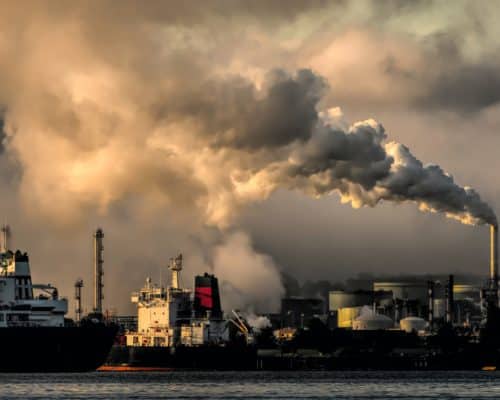Is Natural Gas Renewable?
Photo by Pan Demin via ShutterStock
19 October 2022 – by Eric Koons
Is natural gas renewable? The short answer is no. Natural gas is not renewable. Natural gas is a fossil fuel and the byproduct of biological material decomposing within the Earth’s crust. This further emphasizes that natural gas is not renewable but a finite resource that is very slow to replenish.
Groups are pushing natural gas as a solution to the global demand for clean energy. Natural gas has many advantages and disadvantages.

Yet, natural gas has gained significant traction internationally as a bridging or transition fuel. It is generally used as a transportation fuel and to produce electricity. It is sold under the guise that it will take the world from being heavily dependent on oil and coal to one using renewables like hydroelectricity, solar, or wind.
This is partly due to greenwashing by fossil fuel lobbies. The groups claim that fossil fuels can be good for the environment and that the world needs them to become more sustainable.
How Is Natural Gas Formed?
As previously mentioned, natural gas forms through a process that takes millions of years and the decomposition of biological materials within the Earth’s crust. The gas is usually trapped under a layer of rock and, in many cases, above oil deposits.
The proximity to oil makes it a win-win for fossil fuel companies seeking to extract the fuels. There is also natural gas in different forms, like shale rock or sands. It can come from coal seams and extremely deep below the ground.
Why Is Natural Gas a Non-Renewable Resource?
Creating natural gas is a slow process. It takes millions of years and happens under very specific circumstances.
Although there are some “green” natural gas types, they do not have the capacity to compete with conventional natural gas sources. This means we use and process natural gas faster than the time it takes to produce. It is a finite energy source that will eventually run out.

You can compare this to accepted forms of renewable energy sources, which harness continuous environmental conditions to generate electricity – such as wave and tidal, wind, solar, hydroelectric, geothermal etc. They are not finite.
Is Natural Gas Bad for the Environment?
Natural gas is bad for the environment. Climate change results from burning fossil fuels, and natural gas plays a crucial role in global greenhouse gas emissions. The largest component of natural gas is methane. Methane is a greenhouse gas that is 80 times more potent at warming than carbon dioxide over 20 years. As the United Nations Environmental Programme notes, there is often an association between methane and animal agriculture. Still, the gas has “accounted for roughly 30% of global warming since pre-industrial times and is proliferating faster than at any other time since record-keeping began in the 1980s”.

This alone makes natural gas a dangerous fuel source, but additionally, the infrastructure surrounding it is well known for leaking. This means that we are releasing far more methane emissions into the atmosphere than we know, further driving climate change.
Natural Gas Is Not a Long-term Climate Solution
As such, it is counterproductive to see natural gas as a solution. Natural gas consumption heavily contributes to altering the climate. However, greenwashing and lobbying by the gas industry are keeping natural gas on the agenda. The lobby focuses on the short-term positives and shifts global attention to countries expecting surges in energy demand.
“The gas industry increasingly sees its future in developing countries, where it is calling on governments – especially in Asia and Africa – to make a dash for gas,” explains Greg Muttitt, the co-lead of Sustainable Energy Supplies at the International Institute for Sustainable Development (IISD). Muttitt adds, “Expanding liquefied natural gas exporters such as the United States and Australia are seeking new markets, while gas companies look for new resources to extract and export. This expansion risks locking Global South countries into a high-carbon pathway, imperilling their economic future and the global climate.”
Gas Is Not a Long-term Transition Fuel
It is hard to sell the idea that natural gas is a viable long-term transition fuel. Fossil fuel advocates tend to ignore that natural gas is one of the world’s biggest contributors to climate change. Natural gas is not renewable, nor is it low-carbon and should not be a primary part of the world’s future energy plans. It produces carbon emissions and greenhouse gases.
As international experts repeatedly point out, adopting natural gas as a successor to other fossil fuels will not curb the effects of climate change. It will hinder the progress made by other alternatives.
“Gas is more like a wall than a bridge, impeding rather than enabling the energy transition by competing with renewable energy for investment and policy support.”
Greg Muttitt – International Institute for Sustainable Development (IISD)
Therefore, as nations expand their existing energy infrastructure, they should not look to natural gas. In the immediate term, existing natural gas infrastructure can help meet current demand. However, new natural gas infrastructure has the real risk of becoming a stranded asset.
Experts expect that the long-term global energy mix will heavily rely on renewables. Renewable energy is currently the only way to limit climate impacts and meet the world’s continually growing energy demands.

by Eric Koons
Eric is a passionate environmental advocate that believes renewable energy is a key piece in meeting the world’s growing energy demands. He received an environmental science degree from the University of California and has worked to promote environmentally and socially sustainable practices since. Eric’s expertise extends across the environmental field, yet he maintains a strong focus on renewable energy. His work has been featured by leading environmental organizations, such as World Resources Institute and Hitachi ABB Power Grids.
Read more

